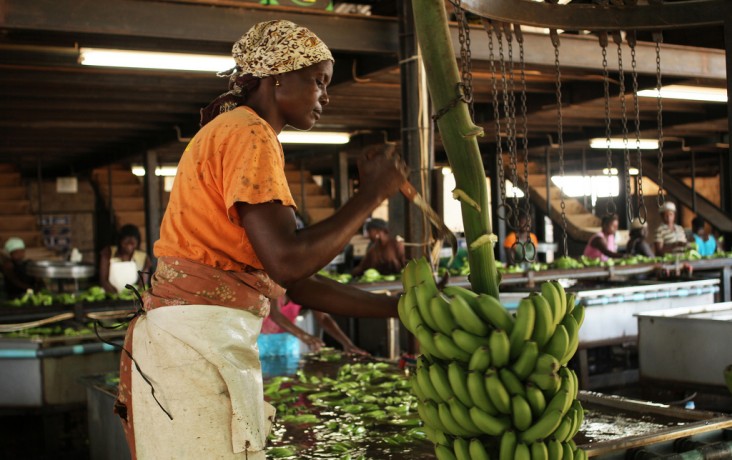- What We Do
- Agriculture and Food Security
- Democracy, Human Rights and Governance
- Economic Growth and Trade
- Education
- Ending Extreme Poverty
- Environment and Global Climate Change
- Gender Equality and Women's Empowerment
- Global Health
- Water and Sanitation
- Working in Crises and Conflict
- U.S. Global Development Lab

A global food crisis from 2007 – 2008 underlined the critical need for open and transparent agricultural markets and trade. Attempts by crisis-stricken countries to hoard supplies, control prices, or ban exports only exacerbate price and supply volatility and cause hardship to millions of producers and consumers. In developing countries, overall economic growth depends on performance in agriculture.
Robust and properly functioning markets:
- Increase returns on investment in agricultural productivity.
- Give rural people the opportunity to specialize in fewer commodities, which increases productivity and affordability.
- Help to match supply and demand between locations and across seasons, increasing sales outlets for producers and improving food security, access, and availability for consumers.
- Bring down the real cost of food, the largest expenditure of the poor.
To be competitive in today’s global marketplace, farmers – especially smallholder farmers – need to be integrated into the full chain of production, from farm to fork. USAID is facilitating this integration, enabling producers and rural industries to better connect with agricultural trade and market opportunities. Specifically, we are working with public and private sector market participants, governments, universities, agribusiness value chains, and civil society and farmer groups to:
- Support the development of sound policy environments that enable open markets, private sector investment, and gender-equitable access to factors of production, products, and income.
- Promote effective institutions and services, such as rural extension and finance, to enable both women and men producers to acquire, protect, and use the assets they need to take advantage of emerging market and trade opportunities.
- Strengthen producer and other rural organizations to help them participate effectively in national, regional and global markets, reduce transaction costs, acquire productivity-enhancing technologies, and make use of information on domestic, regional, and international markets.
- Develop product standards and quality control to meet market demands for food safety, purity, and quality, and to reach higher-value markets.
- Develop the public sector’s roles as provider of market-facilitating goods and services, regulator and referee, and monitor and analyst.
Through Feed the Future, USAID is engaging the private sector in a meaningful, comprehensive way to develop models that are integral to core business strategies and meet the global food security challenge. These “win-win” partnerships are advancing the impact of sustainable development and will foster private sector-led growth in emerging markets, critical to reducing poverty, fighting hunger, and improving nutrition.
Visit FeedtheFuture.gov to learn more.








Comment
Make a general inquiry or suggest an improvement.